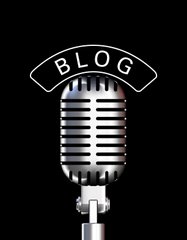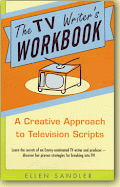
 EI:If you could choose the perfect manuscript you would want to see pop in through the mail slot tomorrow morning, what elements would it contain?
EI:If you could choose the perfect manuscript you would want to see pop in through the mail slot tomorrow morning, what elements would it contain?Adam Chromy: A million dollar price tag would be great. Besides that, I like a unique but readable voice telling a great story in a world that is somehow interesting. When I evaluate a book for consideration, I look at the following:
1. The voice or personality of the writing. This is critical because voice can’t be helped or changed. Some take years to get it, other never do – so for me you either have one I like or you don’t.
2. Novelty of the premise. I think readers like archetypal stories, but told in unique settings or worlds. So I look for a premise or setting so interesting that I don’t even realize I am reading a universal/familiar story.
3. Technical quality. Mostly, I am concerned about narrative structure,
dramatic tension, a satisfying resolution etc. I hope the book is good, but I can work on this with the author.
4. Promote-ability. I am looking for an author or premise that is press worthy. If the author is already a success, the press is easy. But for up and coming or debut authors the press potential for the book usually comes out of the author’s connection to the subject of the book, i.e. a debut espionage thriller from an former spy is far more promote-able than the same book from an accountant.
EI: Has any one genre over the past five or ten years gained a greater share of the market? For example, have sci-fi total book sales increased a few points? Any trends to be aware of?
Adam Chromy: I really wouldn’t say genre, but the nonfiction market, especially narrative nonfiction, has grown at the expense of fiction. Many people say that after the Sept. 11 attack, the world has become too serious for fiction. But I think there is more to it than that. So much has
been done in fiction – the potential variety is infinite – but paradoxically that makes it less interesting. The limits placed on nonfiction spurs more creativity while also keeping the work grounded in truth. So I think writers, even novelists, must keep an eye out and be open to spotting real stories in the world around them that could be told as narrative nonfiction.
EI: It's well known that the number of major publishing houses inclined to take a chance on new writers is dwindling. Given that current successful authors were the first novelists of yesterday, where does corporate publishing imagine the authors of tomorrow will come from if they're unwilling to let them in the door today? Are they planning to clone them?
Adam Chromy: Actually, publishers like bestselling author AND breakout debut writers. The problem with most writers is they think publishers are interesting in building them up as authors (as once was the case) and consequently contact agents and publishers prematurely. A smart author will not even attempt to get published until they have written an absolutely great book (that’s right, throw the first 3 mediocre manuscripts away – nobody wants to read them). And while they perfect their craft and great novel, they will work on developing some notoriety by blogging, publishing short pieces, working as journalists, etc. so that when the book is ready they can present themselves to publishers with the media savvy to be that “breakout” debut. And there are enough people smartly executing this plan for publishers to keep their pipelines going, but if you are not hip to this then the publisher couldn’t care less about your talent or potential.
To learn more about Adam Chromy, please visit him at:
http://www.artistsandartisans.com/
http://www.publishersmarketplace.com/members/snapper/











.png)

No comments:
Post a Comment